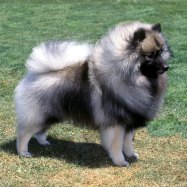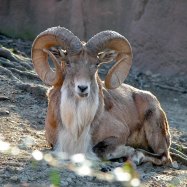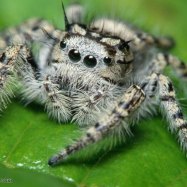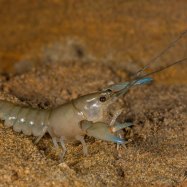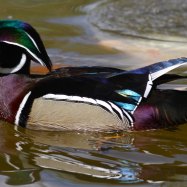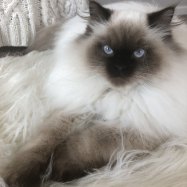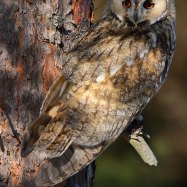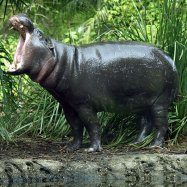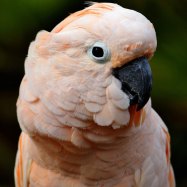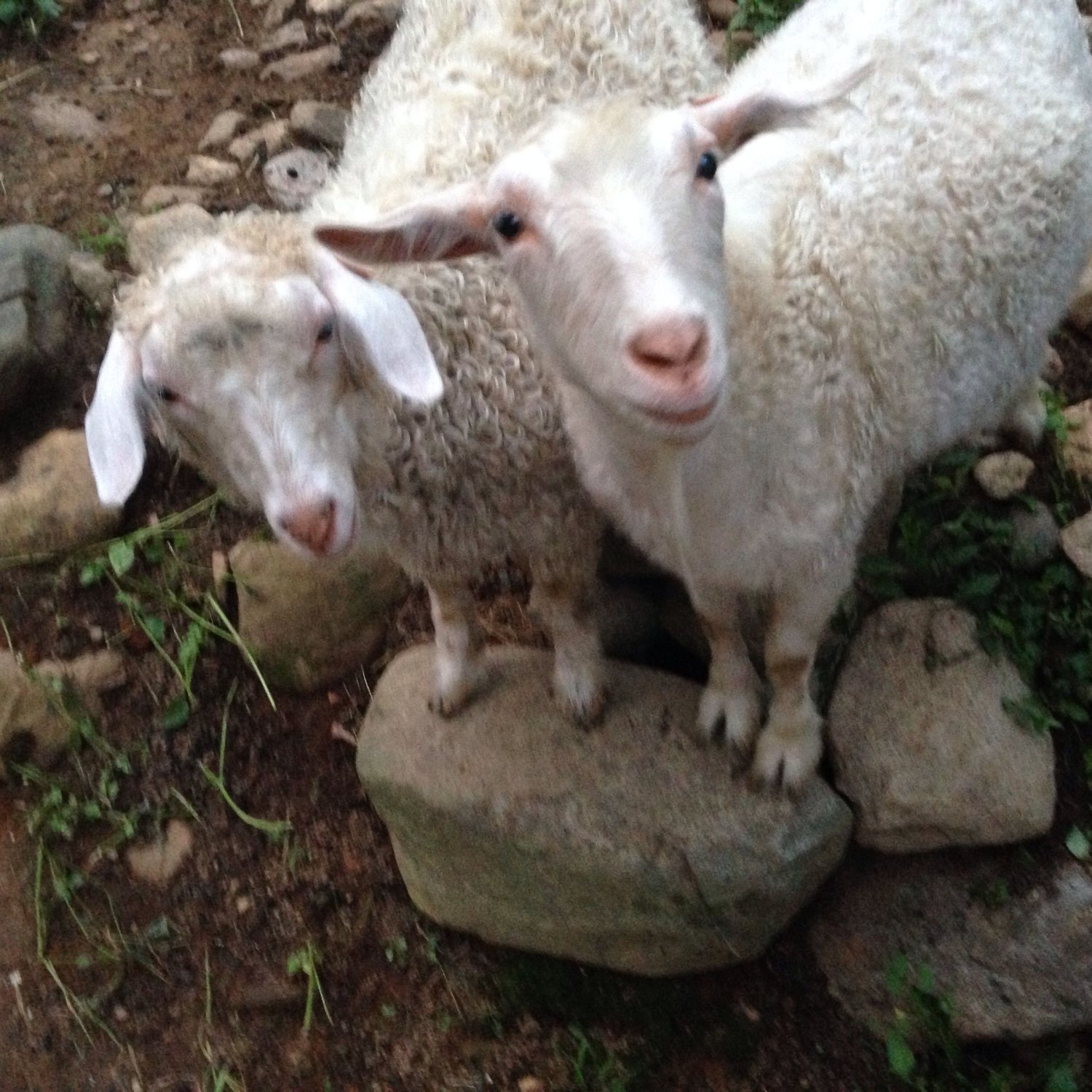
Pygora Goat
22-28 inches (55-70 cm)
Experience the charm of the Pygora Goat, a medium-sized and compact breed that can be found on many farms. Standing at 22-28 inches (55-70 cm) tall, these gentle creatures belong to the Bovidae family and have a soft, luxurious coat perfect for crafting. Add this playful and curious animal to your farm and discover the joy of owning a Pygora Goat.
Animal Details Summary:
Common Name: Pygora Goat
Kingdom: Animalia
Habitat: Various habitats including fields, forests, and mountains
The Fascinating World of Pygora Goats
When we think of goats, we might imagine them grazing in a field or being milked on a farm. However, there is one type of goat that stands out from the rest with its unique characteristics and beauty - the Pygora Goat.Scientifically known as Capra aegagrus hircus, the Pygora Goat is a small-sized domestic breed that has captured the hearts of many with its mesmerizing appearance and gentle nature. Its common name, Pygora, is derived from its two main ancestors - the Pygmy Goat and the Angora Goat Pygora Goat. Let us take a trip into the world of Pygora Goats and unravel its captivating story.
The Evolution of Pygora Goats
The origin of Pygora Goats can be traced back to the 1980s in the United States when a breeder named Katherine Jorgensen had a vision to develop a breed of goats with both qualities of the Pygmy Goat and Angora Goat - small in size with luxurious fiber. She achieved this by crossing the two breeds and selecting the offspring with the desirable traits, thus creating the Pygora Goat.An Introduction to the Animal Kingdom
Pygora Goats belong to the Animalia kingdom, which is a classification for all living organisms that are multicellular, heterotrophic, eukaryotic, and lack cell walls. They are also part of the Chordata phylum, characterized by having a notochord during some stage of their development. This notochord provides structural support and enables the development of a backbone, which is a defining characteristic of vertebrates.As members of the Mammalia class, Pygora Goats have specific traits, including being warm-blooded, having a backbone, and producing milk for their young. They belong to the Artiodactyla order, meaning they have an even number of toes on each foot, and the Bovidae family, making them relatives of cows, sheep, and other domesticated livestock.
The Habitat of Pygora Goats
One of the most fascinating facts about Pygora Goats is their adaptability to various environments Pygmy Python. They can thrive in fields, forests, and even mountains. These hardy goats have been successfully raised in diverse climates, including hot and humid regions to cold and snowy areas.In the wild, goats typically reside in rough and rocky terrain, which is natural for their agile nature. However, as domesticated animals, Pygora Goats are mostly found on farms, where they have ample space and resources to thrive.
The Feeding Habits of Pygora Goats
Pygora Goats are herbivores, meaning they solely rely on forage and vegetation for their nutrition. They have four-chambered stomachs, which allows them to digest tough, fibrous materials effectively. Their diet mostly consists of grass, hay, leaves, and other plants.It is essential to provide Pygora Goats with a well-balanced diet to keep them healthy and promote the growth of their luxurious hair. They also require access to clean water at all times to maintain their overall well-being.
The Global Reach of Pygora Goats
One of the reasons Pygora Goats have gained immense popularity is their global distribution. As domesticated animals, they can be found in various countries worldwide, including the United States, United Kingdom, Canada, and Australia.In the United States specifically, Pygora Goats have become a cherished breed among small farm owners, homesteaders, and fiber artists. They are also seen in petting zoos and as therapeutic animals due to their docile nature.
Fascinating Features of Pygora Goats
1) Unique Coat: Pygora Goats have a coat that sets them apart from other domestic breeds. Their luxuriously soft and fluffy hair is a result of their Angora Goat ancestry, while their compact size is inherited from Pygmy Goats. The coat can be wavy or curly, with a variety of colors, including white, black, brown, and gray.2) Body Shape and Size: Pygora Goats have a medium-sized and compact body, making them easier to handle compared to other larger breeds. They typically reach a height of 22-28 inches (55-70 cm) and weigh between 60-115 pounds (27-52 kg).
3) Lifespan: On average, Pygora Goats have a lifespan of 12-14 years. With proper care and nutrition, some have been known to live up to 20 years.
4) Friendly Nature: Due to their docile nature, Pygora Goats are excellent companion animals and are often kept as pets. They are also great with children, making them a desirable addition to a household.
5) Highly Intelligent: Pygora Goats are intelligent animals and can easily learn routines and commands. They are also known to be curious, making them great escape artists if not fenced in appropriately.
Pygora Goats on the Farm
Pygora Goats are adaptable to a farm setting and can serve various purposes. Many farmers keep them for their luxurious fiber, as they produce a high-quality mohair similar to their Angora Goat ancestors. The fiber can be spun into yarn and used for knitting, weaving, and other crafting purposes.They are also excellent meat producers, with their meat being lean and flavorful. However, due to their small size, they are not commonly raised solely for meat.
Another benefit of keeping Pygora Goats on the farm is their natural grazing behavior, which helps improve the soil quality and control weed growth. They can also be trained to pull a cart or carry small loads, making them perfect for small-scale farming operations.
The Challenges of Raising Pygora Goats
While Pygora Goats are relatively easy to raise and maintain, they still have some specific needs that require attention. One of the main challenges is shearing their fiber, as it needs to be done at least once a year to prevent matting and health issues.Another potential challenge is their susceptibility to parasites, which can cause anemia and lead to other health problems. However, with proper veterinary care and regular check-ups, this can be easily managed.
In Conclusion
In a world full of diverse and fascinating animal breeds, the Pygora Goat truly stands out. Its unique appearance, gentle nature, and adaptability have captured the hearts of many, making it a popular choice among farmers and pet owners alike.From its humble beginnings in the United States to becoming a global breed, the Pygora Goat is a testament to the ingenuity and determination of a single breeder. As this breed continues to evolve and thrive, it is clear that the Pygora Goat has carved a special place for itself in the hearts and landscapes of its many admirers.

Pygora Goat
Animal Details Pygora Goat - Scientific Name: Capra aegagrus hircus
- Category: Animals P
- Scientific Name: Capra aegagrus hircus
- Common Name: Pygora Goat
- Kingdom: Animalia
- Phylum: Chordata
- Class: Mammalia
- Order: Artiodactyla
- Family: Bovidae
- Habitat: Various habitats including fields, forests, and mountains
- Feeding Method: Herbivorous
- Geographical Distribution: Worldwide
- Country of Origin: United States
- Location: Farm
- Animal Coloration: Varies, including white, black, brown, and gray
- Body Shape: Medium-sized and compact
- Length: 22-28 inches (55-70 cm)
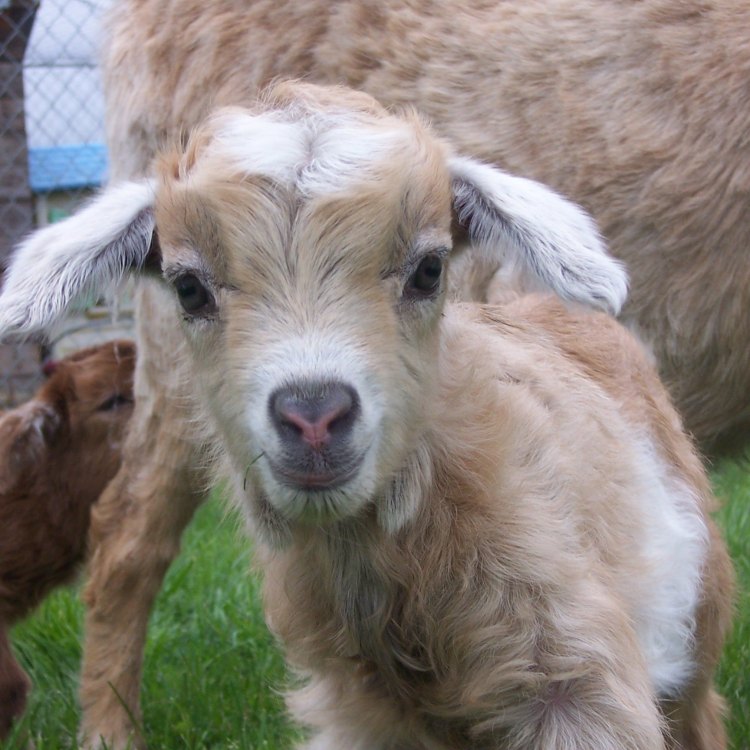
Pygora Goat
- Adult Size: Small to medium-sized
- Average Lifespan: 10-12 years
- Reproduction: Sexual
- Reproductive Behavior: Polygynous
- Sound or Call: Vocalizations including bleating and grunting
- Migration Pattern: Non-migratory
- Social Groups: Herds
- Behavior: Social, curious, and playful
- Threats: Predators such as wolves and coyotes
- Conservation Status: Not listed
- Impact on Ecosystem: Can have both positive and negative impacts on ecosystems
- Human Use: Fiber production (mohair), milk production, and pets
- Distinctive Features: Small size, soft and fine fiber, and various coat colors
- Interesting Facts: The Pygora goat is a crossbreed between the Pygmy goat and the Angora goat.
- Predator: Wolves, coyotes, and other large carnivores
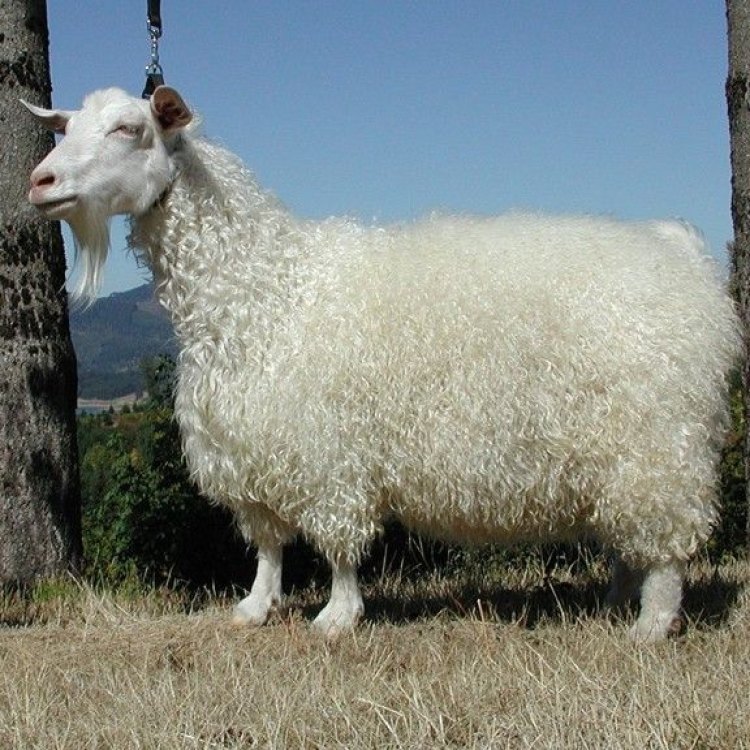
Capra aegagrus hircus
The Unique and Fascinating Pygora Goat: A Delightful Addition to Any Farm
When you hear the word "goat," you might imagine a large, sturdy animal with a majestic set of horns. However, that's not the case with the Pygora goat. This small to medium-sized breed may be small in stature, but it makes up for it with its charming personality and distinctive features. From its soft and fine fiber to its various coat colors, the Pygora goat is truly a unique creature that is becoming increasingly popular among farmers and homesteaders PeaceOfAnimals.Com.Known for its friendly demeanor and playful behavior, the Pygora goat has captured the hearts of many. But there's more to this breed than just its charming personality. In this article, we'll explore the various features and characteristics that make the Pygora goat a delightful addition to any farm.
Origins and Physical Characteristics
The Pygora goat is a relatively new breed, having been developed in the 1980s. It is a crossbreed between the Pygmy goat, which is a small domestic breed, and the Angora goat, which is known for its lustrous and soft fiber. The Pygora goat was specifically bred to produce a goat with a high-quality fiber that is also small in size, making it easier to handle and maintain.As mentioned, the Pygora goat is small to medium-sized, with a height ranging from 16 to 24 inches and a weight of 60 to 75 pounds. They have a soft and fine fleece that can grow up to 6 inches long and comes in various colors such as white, black, brown, and gray. Their coats have a unique mix of guard hair, which is coarser, and down hair, which is softer, giving it a luxurious and silky appearance Parrotlet. These distinctive coats are not only aesthetically pleasing but also make them a highly sought-after breed for fiber production.
Another noticeable feature of the Pygora goat is its horns. Unlike other goat breeds that have large and intimidating horns, the Pygora goat has small and curved horns. However, some are naturally hornless, making them easier to handle and safer for smaller farms. Their small size, friendly demeanor, and unique horns make them an ideal pet for families with children.
Behavior and Social Groups
Social and curious, Pygora goats are known for their friendly and interactive nature. They are highly sociable animals and thrive in herds. In fact, they prefer to be surrounded by their own kind and do not do well when isolated. This makes them an excellent choice for farmers looking to add a friendly and entertaining addition to their herd.Pygora goats are also quite playful, and it's not unusual to see them chasing each other around their pastures. Their playful nature makes them a joy to watch and interact with, making them a popular choice among farmers and homesteaders.
Reproduction and Reproductive Behavior
Like most goats, Pygoras are sexually reproductive and have a polygynous mating system, meaning a male will mate with multiple females. They usually reach sexual maturity at around 6-12 months, and their gestation period is approximately five months. They can give birth to 1-4 offspring, with twins being the most common. These offspring, also known as "kids," are born with a soft and curly fleece, and they start producing their own fiber at around six months old.Native Environment and Migration Patterns
Pygora goats are domesticated animals and do not have a native environment. They are non-migratory animals, meaning they do not migrate from one place to another. They are highly adaptable and can thrive in various climates, making them an excellent choice for farmers and homesteaders worldwide.Threats and Conservation Status
As with most domesticated animals, Pygora goats do not face any significant threats in their environment. However, they are susceptible to predators such as wolves and coyotes, which may pose a threat to their safety, especially for those kept in open pastures. Farmers and homesteaders must take measures to protect their Pygora goats from these carnivores to ensure their safety.Another aspect that helps protect this breed is its conservation status. The Pygora goat is not currently listed as an endangered or vulnerable species, making it a relatively stable breed. However, it is crucial to continue responsible breeding practices to maintain the population and prevent any potential threats to their sustainability.
Impact on Ecosystem and Human Use
As with any animal, the Pygora goat can have both positive and negative impacts on the ecosystem. On the positive side, their gentle grazing habits can help control weed growth, and their manure can be used as organic fertilizer for crops. However, their browsing habits can also cause damage to trees and shrubs if not properly managed.Human use of Pygora goats is mainly for fiber production and milk production. Their soft and fine fleece, known as mohair, is highly sought after by hand-spinners and weavers, making it a profitable venture for farmers. Their milk is also used to make cheese and soap, but dairy production is not as common as their primary purpose is fiber production.
Interesting Facts
Aside from its distinct features and characteristics, the Pygora goat also has some interesting facts that make it a unique breed. As mentioned earlier, this breed is a cross between the Pygmy goat and the Angora goat. The Pygmy goat is known for its short stature and playful nature, while the Angora goat is known for its luxurious mohair. The combination of these two breeds results in an adorable and versatile creature that is the Pygora goat.Predators
While Pygora goats may not have any natural predators, as mentioned earlier, they are still susceptible to attacks from large carnivores such as wolves and coyotes. To protect them from these threats, it is essential to have proper fencing and other measures, such as guard dogs, in place.In Conclusion
In conclusion, the Pygora goat is a unique breed with various distinctive features and characteristics that make it a delightful addition to any farm. From its small size and friendly demeanor to its soft and fine fleece, this breed is a joy to have and interact with. Their adaptability, low maintenance, and multiple uses make them an excellent choice for farmers and homesteaders around the world. With responsible breeding and proper care, the Pygora goat has a promising future as a beloved and sustainable breed. So, if you're looking to add some charm and personality to your farm, the Pygora goat is undoubtedly worth considering.
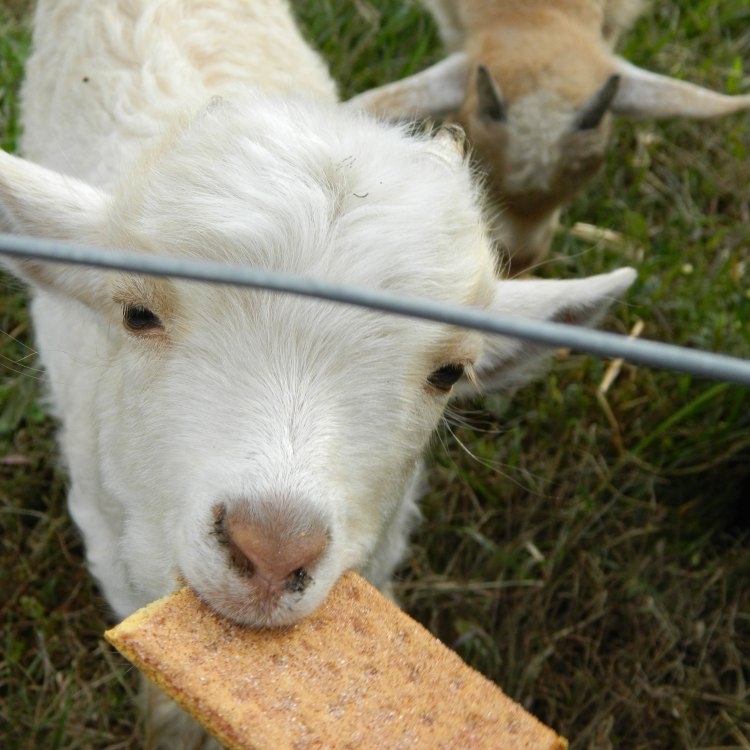
The Fascinating World of Pygora Goats
Disclaimer: The content provided is for informational purposes only. We cannot guarantee the accuracy of the information on this page 100%. All information provided here may change without prior notice.



